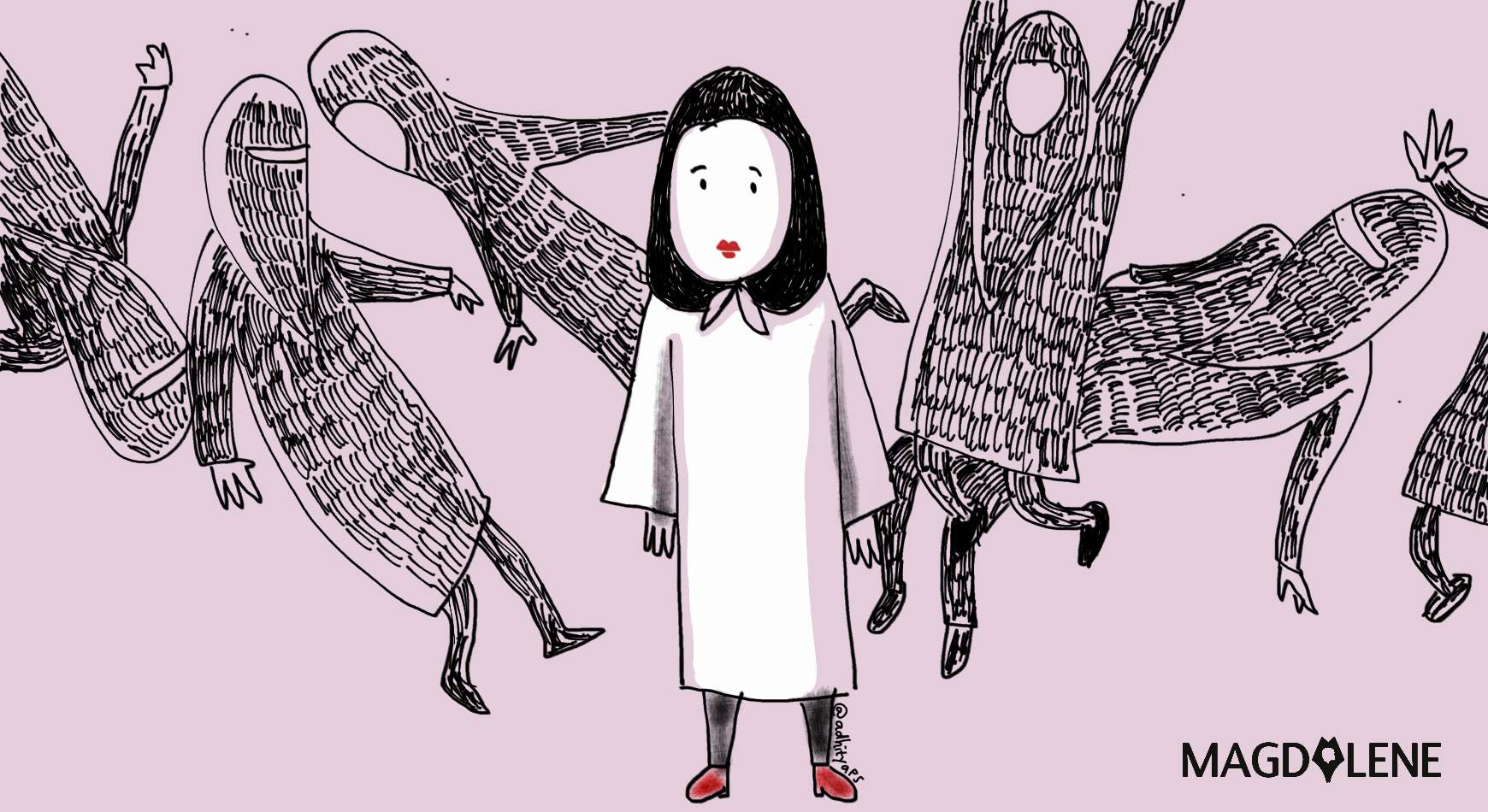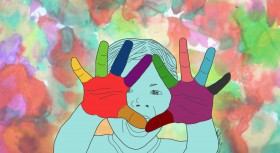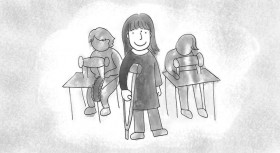During Ramadan, my daughter’s school requires Muslim clothes as a dress code. This morning I dressed her in a pair of trousers and long-sleeved shirt (pink, her favorite). At the last minute, I grabbed a piece of hijab (also pink) and put it in her backpack, just in case. Upon arriving at school, she saw her friends dressed in similar clothes, but also with hijab on their head. She turned to me and, predictably, asked, “Where is my hijab?”
I sighed and took out the pink hijab. She stayed still while I put it on her head, then smiled. She looked so happy, my heart broke a little.
I have a long history with hijab. I started wearing it at age 14, voluntarily, and I still remember how special it made me feel at that time, like I had this special connection with God. Fast forward 10 years later, I started to question my religious upbringing. I had been reading the Indonesian translation of the Quran—not just reciting the Arabic verses like I did for years—and realized that a lot of the Islamic teaching did not align with my own sense of morality. At the same time, I also read a lot of science books and, consequently, came to doubt the Quranic story of the origins of humans, the universe, and God.
One can support LGBT rights, women rights, believe in evolution, and still remain a Muslim, I think. But for me, that is not the case. I was so tired of excuses like “verses taken out of context” or “just a metaphor”. How could the Quran be infallible if I have to cherry pick my way through it?
I took off my hijab when I left Islam. But an atheist has no place in Indonesian society. And certainly not in my and my husband’s family. I love my family, but they are so prejudiced against atheism. My father will literally have a heart attack hearing my confession of apostasy. The rest of the family will disown me or, worse, see me unfit for parenting.
So, I still pray when they are around. During Ramadan I still fast, though I keep snacks and bottled water in my bag and eat when no one is looking. I make sure there’s no food left between my teeth and try my best to look hungry.
Do I feel like a hypocrite? Oh, yes, all the time. It can be suffocating to not be able to be who you are and speak your mind, but until our society can develop a common sense regarding atheism, I guess I’ll have to swallow my pride and fake it.
I never want to raise my daughter as an atheist, any more than I want to indoctrinate her with religious dogmas. The eye-opening thing about losing your faith is that you learn to think for yourself, and this is how I want to raise my daughter. I don’t see any point in depriving her of her religious background. If anything, she has to know what the Quran says about issues like LGBT, women rights, befriending unbelievers, so she can decide whether they go hand in hand with her own moral compass.
This is why this morning despite my disapproval of the philosophy behind the hijab I let her wear one. My late mother stood behind me when I first wore the hijab, and she stood behind me when I took it off, because even though she didn’t always agree with my decisions, she always defended my right to make those decisions. And I will do the same for my daughter.
Lately, though, as she grows older, I’ve been wondering how long I am planning to keep my atheism a secret. How am I going to be a role model for her, if I lie and pretend to my own family? They say it takes a village to raise a child. But will my village still stand by me when they hear about my apostasy?
Dian is a 30-year-old fiction writer and a mom. She enjoys reading Richard Dawkins and mystery novels. In her spare time, she likes to knit.








Comments